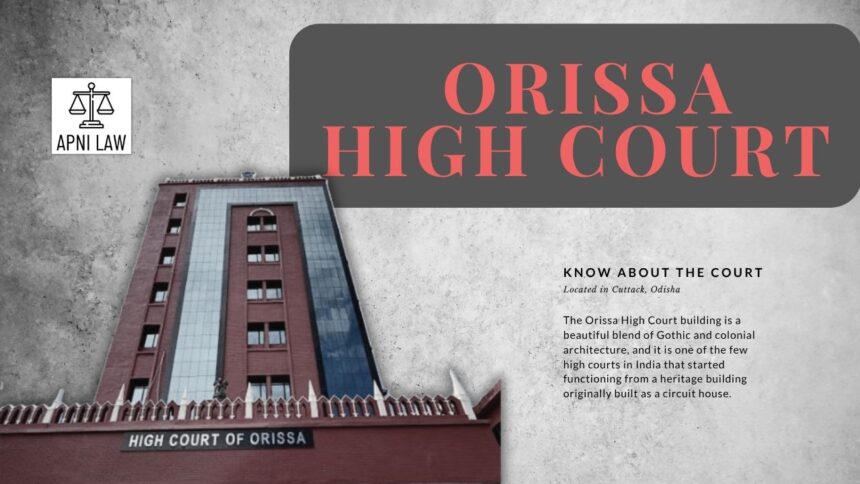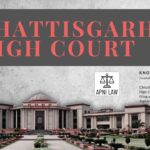Introduction
In a significant ruling, the Orissa High Court emphasised that proceedings under Section 138 of the Negotiable Instruments Act (NI Act) may continue against directors and signatories of a company even after the company has been declared insolvent under the Insolvency and Bankruptcy Code, 2016 (IBC). The decision delivers a clear message, corporate insolvency does not shield individuals from criminal liability for cheque dishonour.
Judgment
The judgment in question is titled Syed Najam Ahmed v. State of Odisha & Anr. (CRLMP No. 837 of 2025), delivered on 13 October 2025 by a Single-Judge Bench of the Orissa High Court comprising Justice Chittaranjan Dash. The Court held that insolvency of a company and appointment of a resolution professional do not automatically terminate Section 138 NI Act proceedings against directors or authorised signatories of the company.
Facts of the Case
A private company, Zenith Mining Pvt. Ltd., entered into a “friendly loan” arrangement by which the complainant extended Rs 1 crore to the company. The company, through its Managing Director, issued a cheque dated 25 June 2021 for Rs 1 crore drawn on its bank account. The cheque was presented and dishonoured twice with the drawer being “refer to drawer”.
Following the dishonour, the complainant issued a statutory demand notice and then filed a complaint under Section 138 NI Act against the company, its Managing Director and an agent. Meanwhile, Zenith Mining had been declared insolvent by the relevant tribunal under Section 7 of the IBC and a resolution professional was appointed. The petitioner sought discharge from the criminal proceedings on the ground that only the resolution professional was competent to represent the corporate debtor and hence the directors should not be personally liable. The trial court rejected the discharge application.
What the Court Says
The Orissa High Court reaffirmed that prosecution under Section 138 NI Act is penal in nature and therefore distinct from the insolvency proceedings under the IBC, which are primarily for corporate restructuring and recovery. The Court relied on the Supreme Court’s precedent in Ajay Kumar Radheshyam Goenka v. Tourism Finance Corporation of India Ltd. (2023) 10 SCC 545, which held that the fact that a matter is pending before a resolution professional does not affect the separate criminal liability of directors for offences under Section 138/141 NI Act.
The Court observed that the moratorium under Section 14 IBC applies only to the corporate debtor (i.e., the company) and does not extend to natural persons such as directors or signatories who can be prosecuted. It held that the liability of a director or authorised signatory does not vanish simply because the company is under insolvency or has been dissolved. The Court noted: “What is dissolved is only the company, not the personal penal liability of the accused covered under Section 141 of the NI Act.”
Thus, the bench concluded that the proceedings under Section 138 NI Act cannot be terminated solely because insolvency proceedings are on foot. It affirmed the trial court’s order refusing discharge of the petitioner and dismissed the revision petition as devoid of merit.
For any specific query call at +91 – 8569843472
Implications
The ruling sends a strong signal to corporate directors, signatories and those in charge of company finances: being part of an insolvent company or having a resolution professional appointed does not provide immunity from criminal proceedings under the NI Act. Even when a company is undergoing insolvency or liquidation, individual accountability remains alive for cheque dishonour offences.
For creditors, the decision means that pursuing a criminal complaint under Section 138 remains viable even if the debtor company has entered insolvency resolution. The restructuring process under the IBC may not block criminal proceedings against individuals. Corporate counsel and directors must therefore appreciate that insolvency planning alone is not a defence to cheque-bounce liability.
For insolvency professionals and companies, this judgment highlights that actions under the IBC do not merge or interfere with separate penal liability under other statutes. In practical terms, companies and their directors need to remain vigilant about compliance, cheque issuance, and financial obligations, because insolvency will not automatically halt criminal liability.
In short, the Orissa High Court has clarified that insolvency proceedings are no cloak and dagger for directors when it comes to cheque dishonour; the law holds individuals accountable irrespective of corporate restructuring.








